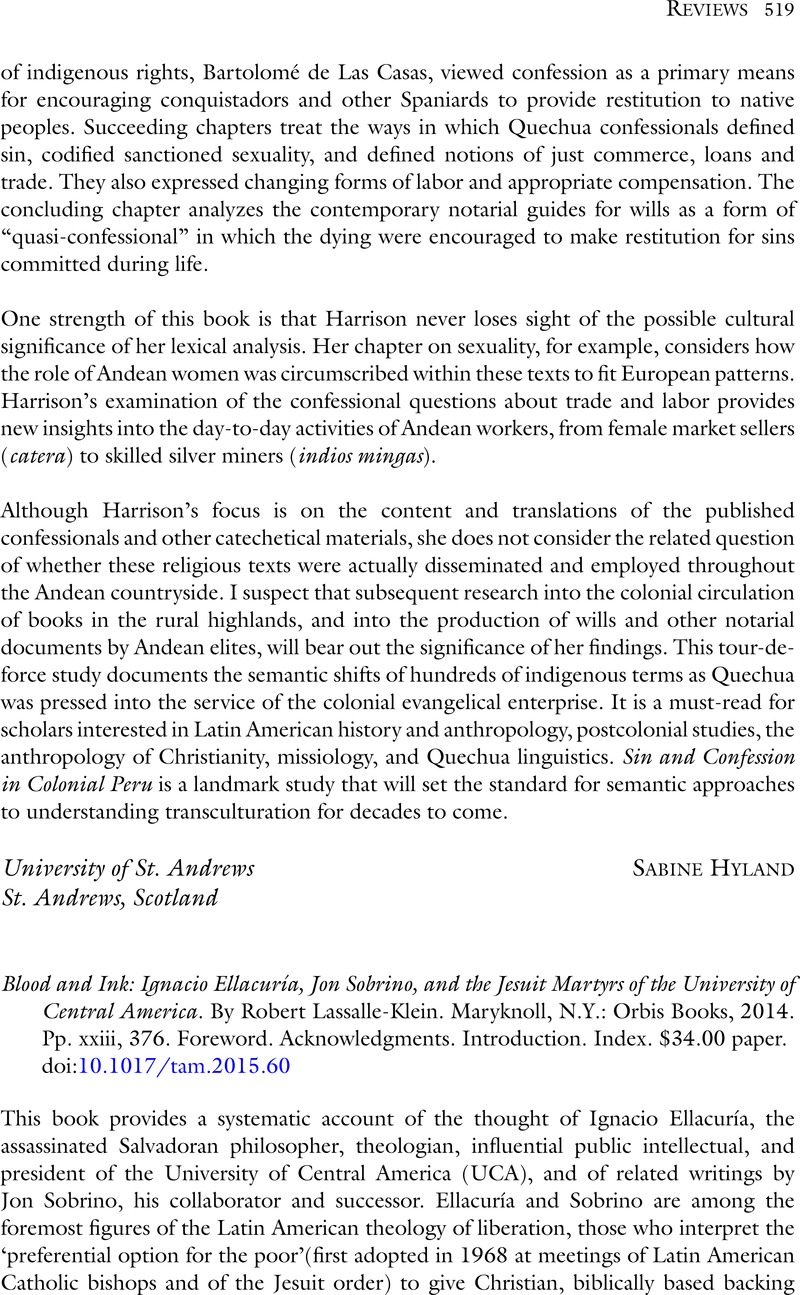This book provides a systematic account of the thought of Ignacio Ellacuría, the assassinated Salvadoran philosopher, theologian, influential public intellectual, and president of the University of Central America (UCA), and of related writings by Jon Sobrino, his collaborator and successor. Ellacuría and Sobrino are among the foremost figures of the Latin American theology of liberation, those who interpret the ‘preferential option for the poor’(first adopted in 1968 at meetings of Latin American Catholic bishops and of the Jesuit order) to give Christian, biblically based backing to the aspiration and active quest of marginalized people to be protagonists of their own liberation from the violence and injustice that overshadow their lives. They call everyone to solidarity with these people and to collaboration in their struggles for justice.
During the civil war that devastated El Salvador during the 1980s, unrelenting violence was unleashed against the poor of that country, sometimes specifically directed at those influenced by liberation theology. In addition to massacres of thousands of these people, there is a long list of assassinations of well-known religious figures that includes Archbishop Oscar Romero, four American women missionaries (1980), and six members of the Jesuit community at the UCA, their cook, and her daughter (1989). Ellacuría was the principal target in the Jesuits' assassination, which was carried out by members of a US-trained elite battalion of the Salvadoran army. Those who ordered it hoped that killing Ellacuría would put an end to the influence of his ideas, and above all to the demand for a negotiated settlement to the war that he advocated insistently and publicly. Their hopes were not fulfilled.
Robert Lassalle-Klein, associate professor of religious studies and philosophy at Holy Names University in Oakland, Calif., narrates the history of these events in detail and also points to its ironies: that the Jesuits' assassination became an instigating factor in creating the conditions that led to the war ending (1992) with a negotiated settlement, and that Ellacuría's ideas and his vision of the university remain alive today and continue to be influential in El Salvador and beyond.
To address the sources that shaped Ellacuría's thought, its philosophical and theological originality, its contribution to liberation theology, and its responsiveness to and impact on events in El Salvador, and how these shaped the vision and programs of the UCA, Lassalle-Klein divides the book into three sections. In the first, he traces steps in the development of the UCA as a university shaped by commitment to the preferential option for the poor. This involved the introduction of programs directed toward understanding the “national reality” of El Salvador and identifying possibilities for transforming it into a just society. To support the effort there were additional complementary programs that aimed to put all UCA personnel, including students, into direct interaction with the lives, aspirations, and emancipatory movements of the poor majority. In the second section, Lassalle-Klein analyzes major influences on the development of Ellacuría's theological and philosophical ideas. They include traditional Jesuit spirituality, his revered teachers, the Spanish philosopher Xavier Zubiri, the German theologian Karl Rahner, and his personal contact with the ministry and assassination of Archbishop Romero. These, the author argues convincingly, are the key sources of the originality of Ellacuría's contribution to liberation theology. Readers unfamiliar with Heidegger or scholastic philosophy will find the expositions of Zubiri and Rahner difficult to grasp. The difficulty is relieved somewhat in the third section, where Ellacuría's (and Sobrino's) account of the inseparability of historical liberation and Christian salvation, an essential aspect of their interpretation of the preferential option for the poor, is expounded vividly.
All aspects of the book are thoroughly documented. The outcome is a compelling account of Ellacuría's thought that explains why it was so threatening to the Salvadoran elites 25 years ago, and why it remains relevant and challenging today.



